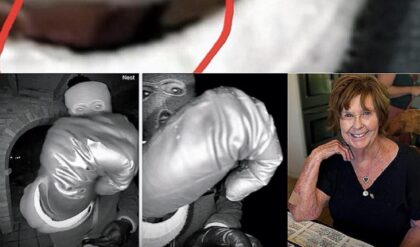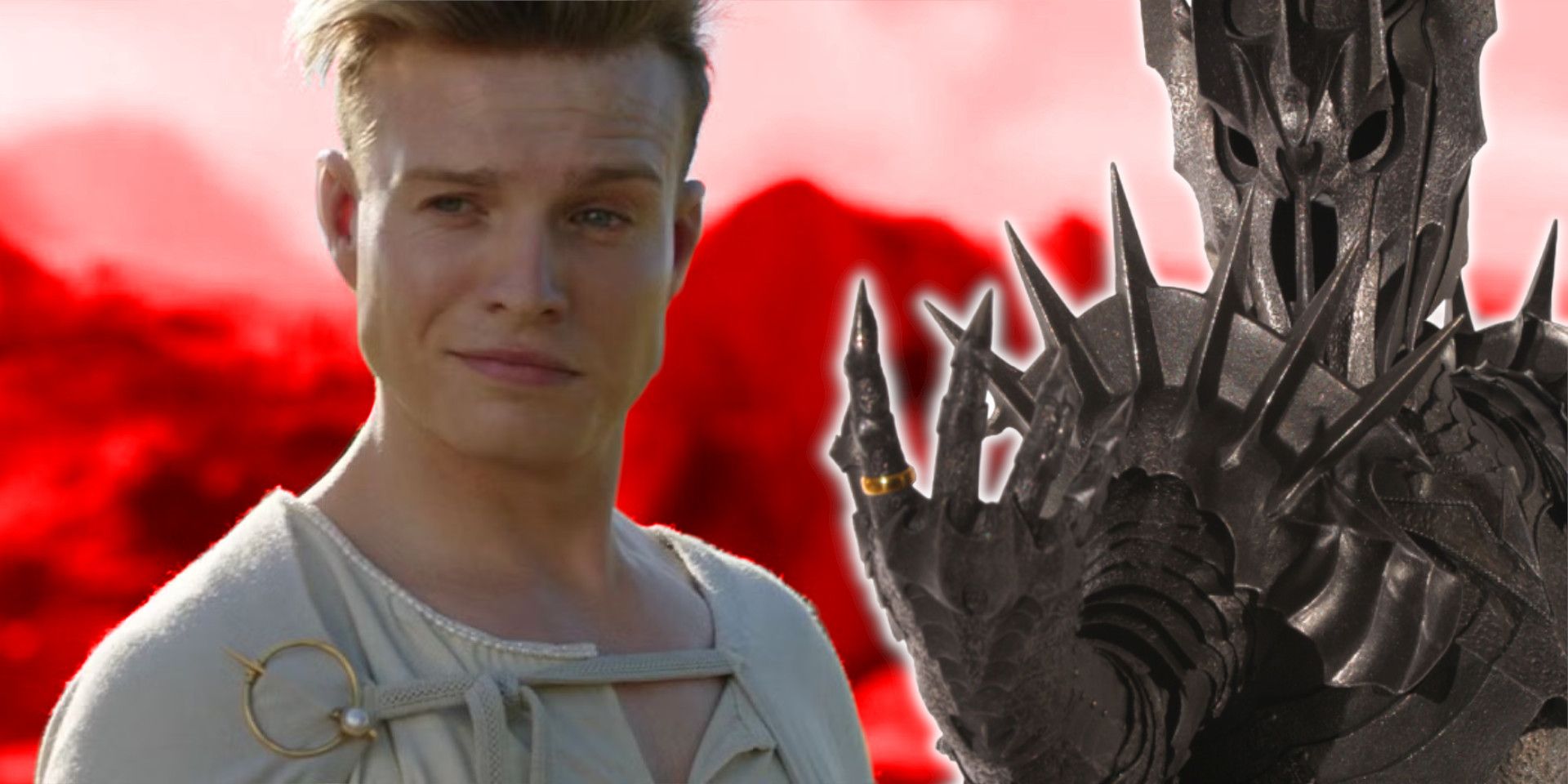
The Lord of the Rings is known, both in the novels and the movies, for its massive large-scale battles. From the fields of Pelennor to the Battle of Helms Deep, The Lord of the Rings has no shortage of epic conflicts. Yet, Sauron’s often-forgotten battle of the First Age was like nothing that most fans would imagine when thinking of a battle within Middle-earth. This battle was not fought with swords and arrows but with songs and magic.
Sauron Played With Finrod’s Emotions
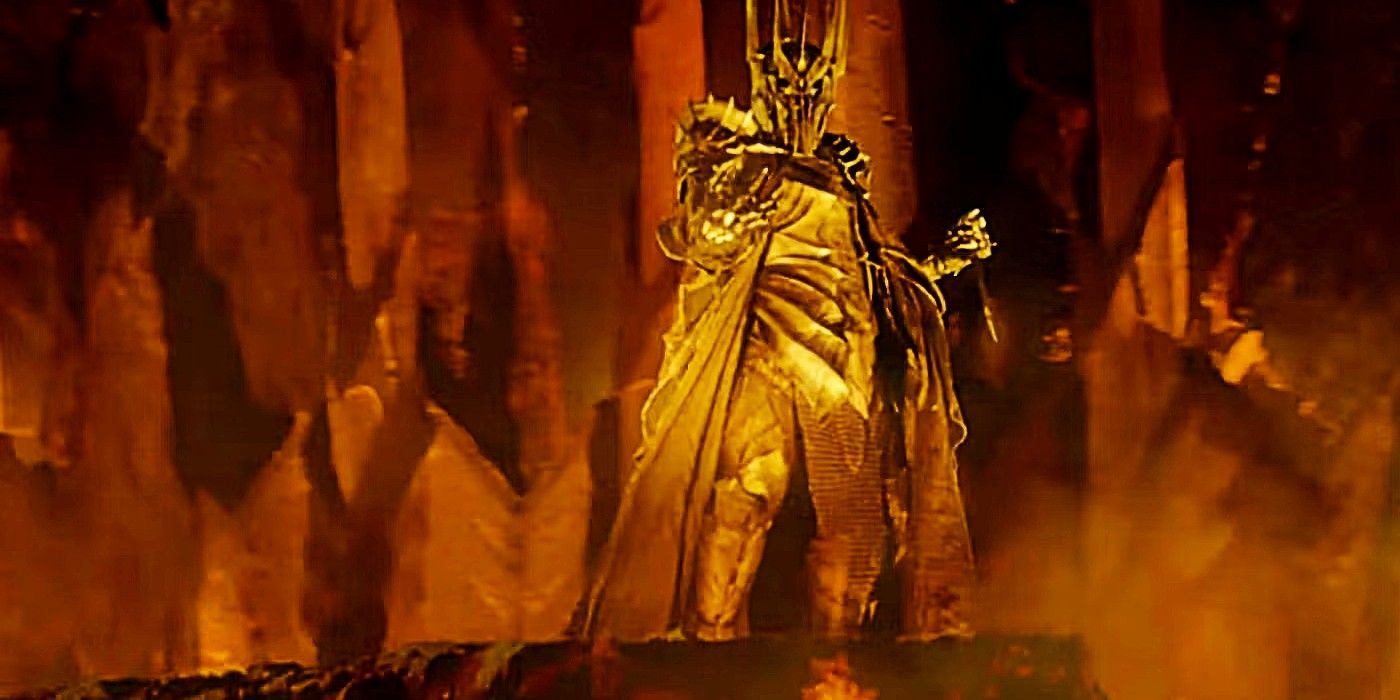
In an older draft of the story, Tolkien explained that Beren and Finrod used fake names while disguised as Orcs; Beren went by Nereb, which was his name spelled backward, and Finrod went by Dungalef, which was his epithet spelled backward.
In the First Age, a Man named Beren — an ancestor of Aragorn from The Lord of the Rings — went on a quest to steal the Silmarils from the Iron Crown of the Dark Lord Morgoth. To do so, he enlisted the aid of Galadriel’s brother, Finrod Felagund, who had sworn allegiance to Beren’s family long ago. Beren, Finrod, and ten other Elven warriors set out on a journey north. To reach Morgoth, they needed to first pass by Sauron’s stronghold, Tol-in-Gaurhoth. To move through Sauron’s territory unnoticed, they donned armor from some of their slain Orc enemies, and Finrod cast a spell to make them resemble Orcs.
Finrod’s illusion was flawless, but he and his allies made a dire mistake; they did not stop at Tol-in-Gaurhoth to report to Sauron, which all Orcs were supposed to do when they were in the area. This raised Sauron’s suspicions, so he sang a magical tune to dispel their disguises. Not wanting Sauron to learn who they truly were, Finrod counteracted the future Dark Lord’s song with one of his own. Thus began a duel of music between Sauron and Finrod, which Tolkien described in the form of a poem in the section “Of Beren and Lúthien” from The Silmarillion. It was one of the strangest yet most fascinating fights from The Lord of the Rings‘ wider lore, and it was indicative of Tolkien’s feelings towards music.
Unfortunately, Tolkien did not provide lyrics for this song battle, but he did outline the topics it covered. Sauron opened with “a song of wizardry, / Of piercing, opening, of treachery.” In turn, Finrod pointed out the futility of trying to capture them. He sang about “trust unbroken, freedom, escape; / Of changing and of shifting shape, / Of snares eluded, broken traps, / The prison opening, the chain that snaps.” He then moved into a description of Elven lands such as his home kingdom of Nargothrond, the beauty and might of which Sauron could not possibly match. His words were so evocative that listeners thought they could hear birds singing in Nargothrond and waves crashing on the shores of Valinor.
“Backwards and forwards swayed their song,” and Finrod seemed to be winning their contest, but Sauron had an ace up his sleeve: he sang about “the red blood flowing / Beside the Sea, where the Noldor slew / The Foamriders, and stealing drew / Their white ships with their white sails / From lamplit havens.” This was a reference to the Kinslaying, one of the most tragic events in Elven history. Finrod’s uncle, Fëanor, had led the Noldor clan of Elves in a brutal massacre of the Teleri clan to steal their ships. Finrod had not been personally involved in the Kinslaying, but it was still a source of great guilt and shame for him. It was a stain on the history of his family, his clan, and the Elven race as a whole.
Middle-earth’s Song Battle Had a Real-world Precedent
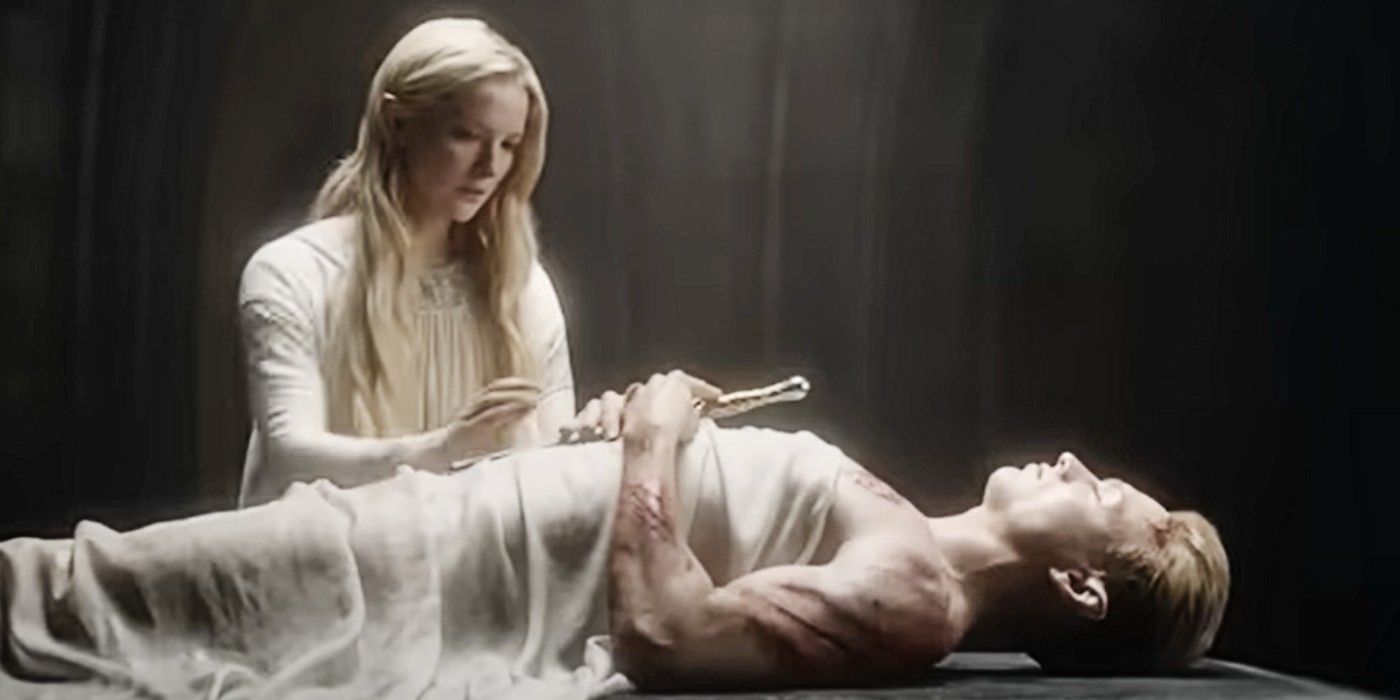
Beren’s death was not the end of his story; Lúthien convinced the Valar to bring him back to life at the cost of her own Elven immortality, and they spent a lifetime together in relative peace.
Sauron’s song about the Kinslaying was so powerful that the environment reacted; the sky grew dark and stormy, wolves howled ominously, birds flew away and the fires of Tol-in-Gaurhoth raged. Finrod had no retort for this, so he “fell before the throne,” defeated. Sauron then imprisoned Finrod and his companions in the depths of Tol-in-Gaurhoth. There, werewolves killed Finrod and the other Elves, but thanks to their sacrifice, Beren survived. With help from his beloved Lúthien and the mighty hound Huan, he escaped Tol-in-Gaurhoth. He went on to steal the Silmarils from Morgoth’s crown as he had originally planned, but at great cost; he lost a hand and later died from his wounds. This bloodshed was a direct result of Sauron’s victory in his musical duel with Finrod.
Song battles were a historical tradition. Throughout much of medieval Europe, there existed a practice known as flyting, in which individuals exchanged insulting songs or poems. They were essentially the ancient version of rap battles. Flyting was especially prominent among Viking and Anglo-Saxon cultures, appearing both in Norse mythology and stories like Beowulf, which were areas of expertise for Tolkien. For example, in the poem “Lokasenna” from the Poetic Edda, Loki flyted with the other gods, accusing them of cowardice, infidelity, and the practice of dark sorcery. The musical duel between Sauron and Finrod was similar to flyting, but since they were a Maia and an Elf, respectively, they were both empowered by magic. Their music was able to hide or reveal the truth, and it had a tangible effect on the surrounding landscape.
J. R. R. Tolkien Believed That Music Had Power
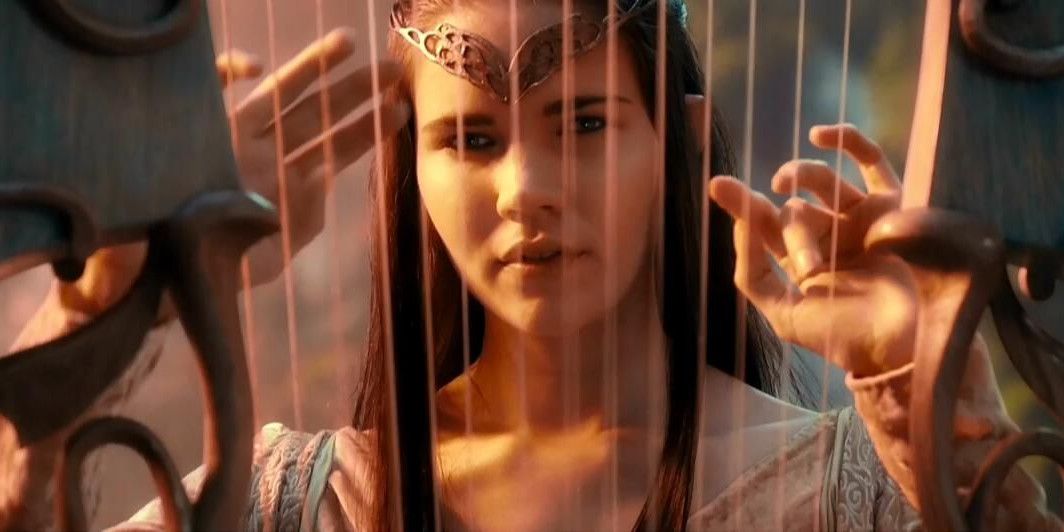
The magical power of song was a running theme in Tolkien’s legendarium. It began with the very origin of his fictional setting; according to The Silmarillion, divine spirits known as Ainur — which included both the Valar and the Maiar — sang the universe into existence. Yavanna, the Vala of plant life, later sang to create the Two Trees of Valinor, which gave light to Middle-earth and the rest of the world before the creation of the Sun and Moon. This theme even appeared elsewhere in “Of Beren and Lúthien.” After freeing Beren from Tol-in-Gaurhoth, Lúthien accompanied him to Morgoth’s lair. She “began a song of such surpassing loveliness, and of such blinding power, that [Morgoth] listened perforce; and a blindness came upon him, as his eyes roamed to and fro, seeking her. All his court were cast down in slumber.” As Morgoth slept, Beren was able to steal the Silmarils from his crown. Prime Video’s The Lord of the Rings: The Rings of Power continued this theme with the Stone-singers, a group of Dwarven women who used their voices to locate veins of ore in Moria.
Such an emphasis on the power of song throughout Tolkien’s legendarium may lead readers to assume that the author was a talented musician, but by his admission, the opposite was true. In a letter to a family friend named Rob Murray, Tolkien wrote,
Anyone who can play a stringed instrument seems to me a wizard worthy of deep respect. I love music, but have no aptitude for it; and the efforts spent on trying to teach me the fiddle in youth, have left me only with a feeling of awe in the presence of fiddlers.
Despite this, music was a major part of Tolkien’s life. Both his mother, Mabel, and his wife, Edith, were pianists, and he greatly enjoyed listening to their performances. His family’s connection to the instrument went even further back, as his grandfather was a piano maker. Tolkien believed that music had emotional, and spiritual power, so in his fantasy stories, he chose to give it physical power as well. Though music was usually a thing of beauty in Middle-earth, Sauron was able to twist it into something evil, as he did with much that was once good and pure.

